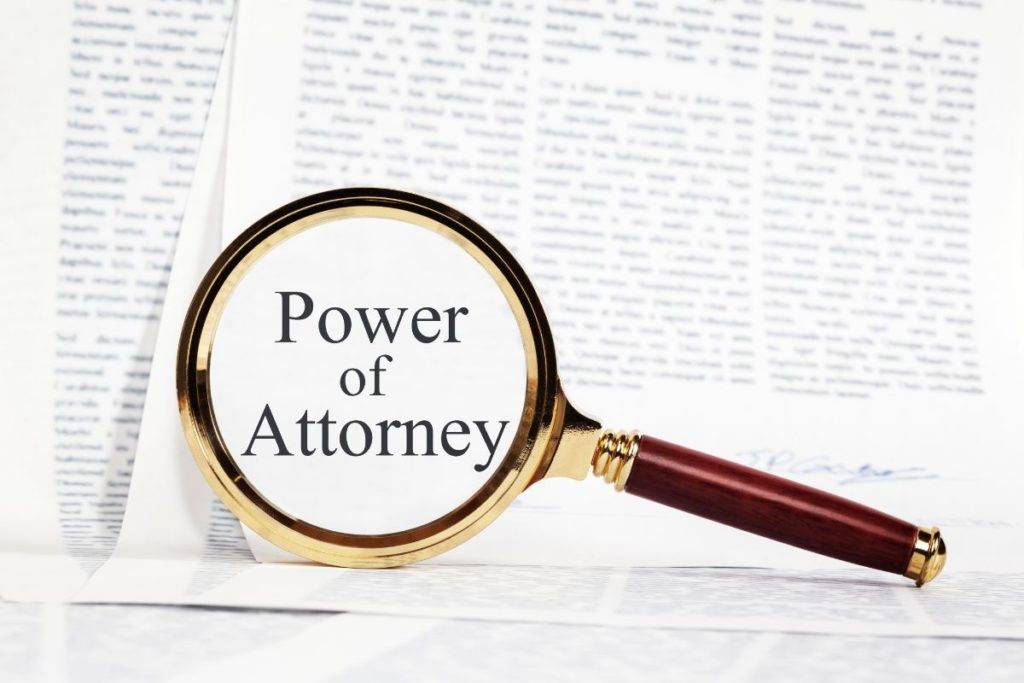Power of attorney is a legal document that gives the individual legal permission to make decisions on behalf of another individual. The individual who receives a power of attorney is known as an agent or attorney-in-fact who is especially valued when there’s a need to manage affairs as the person is unable or absent to do so.
The types of power of attorney
There are a few types of power of attorney, each of which has a specific value. Starting from the General Power of Attorney which grants broad powers to the agent so they can handle various legal and financial cases. There’s also a Durable Power of Attorney that stays valid even if the principal is incapacitated and a Limited Power of Attorney that restricts the agent’s authority to certain tasks and deadlines. One more specific type is the Medical Power of Attorney which allows the agent to make healthcare decisions for the principal (the person that is unable to make decisions for themselves). Now, that we know what is power of attorney and what type it has, let’s understand why you need it.
Why you need a power of attorney
Having a POA means being able to manage your affairs based on your wishes and preferences in many case scenarios. For example, if you’re incapable and unable to make decisions due to a certain illness or injury, a POA (power of attorney) allows someone you trust to make decisions on your behalf. Or, if you are frequently traveling or living abroad, a POA will help you manage your financial and legal matters safely while you are away.
A power of attorney is also important for the elderly as it helps them manage decisions related to their health and finances more effectively and without any worries.
The differences between durable and limited POA
Durable and limited powers of attorneys serve different purposes and offer varying authority levels to the person who you are trusting the role. For example, the durable power of attorney allows the person extensive powers to act on behalf of the individual, including a wide range of financial and legal aspects. With this type of power of attorney, the agent can manage bank accounts, sign checks, fill taxes, and even make real estate transactions. One of the descriptive features of a durable power of attorney is that it stays effective even when the principal becomes incapacitated as in they are to continue to make decisions and manage affairs without any interruption or restriction.
The limited type of power of attorney grants the person attorney for specific tasks or transactions. For example, it can allow the person to manage finances for a limited period of time while the principal is traveling, unable, or absent. It’s an authority type that contains limited features or specific actions and the agent’s power ends once the task is complete or the LPOA period has expired.
How to get power of attorney
There is a certain chain of steps that will help you to establish a power of attorney. Firstly, it is important to choose someone that you trust and someone willing to take on such responsibility. Then, you need to decide the authorities you will grant to that person, for example having authority on your finances, medical decisions, real estate management, etc. Then, it is important to work on obtaining the correct POA form, as in the state-specific power of attorney form, which can be available either online or through legal resources. After these steps, it’s time to complete and sign the document by filling out the form according to your country’s and state’s requirements, which can have notarization and witness signatures. The complete document may also need registration as some jurisdictions require a registered POA in order to consider it valid. To do all these steps, you need to seek professional help, as in contact with a notary office to supervise and handle the POA establishment.
The responsibilities to discuss with the chosen agent
Power of attorney is a legal document that will give someone you trust an attorney to make decisions on your behalf. So, it is highly important to thoroughly discuss what the person will be authorized to do, and what not. This discussion will also allow the person to understand if they are willing to sign in for the role. So, for example, if you want to authorize someone to manage your finances, then it is important to bring into discussion matters such as paying bills, handling banking needs, and event-making investments. If you are considering authorizing the person with regal responsibilities, then you should discuss filing taxes and managing real estate transactions. For healthcare reasons, you can discuss the medical decisions, including choosing care facilities on your behalf.
Conclusion
Having a POA is an important step for a certain period of your life, be it the absence, incapability, or health matters that will restrict you from handling the situation. This is a legal form of trusting and granting someone to make decisions on your behalf that you will trust and approve. So, start by studying the differences between the power of attorney types, their types, and restrictions, then apply to the trusted notary to handle the POA establishment.
